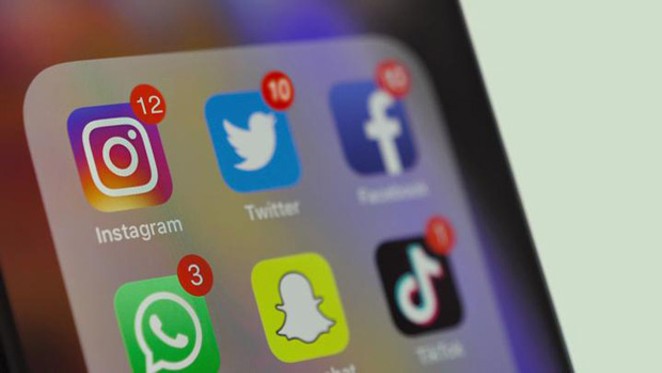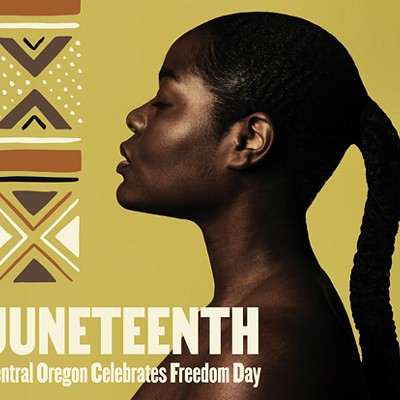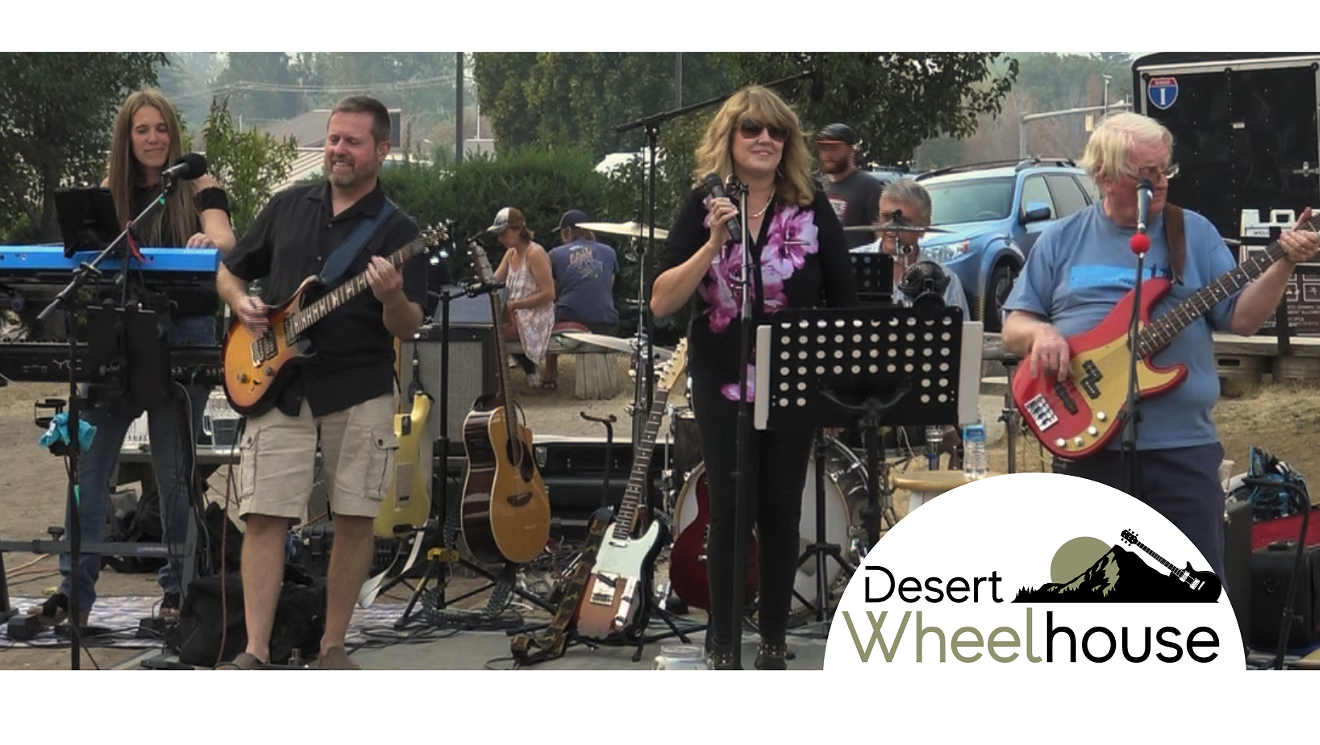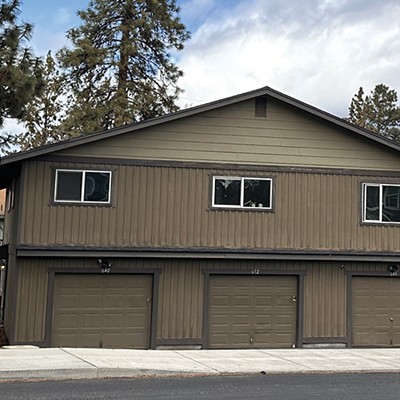In a presidential election year, every day can feel like a week; every week like a year. It feels like far more than a week ago that Americans watched as the two presidential candidates appeared together for their first debate. The subsequent string of local and national officials announcing publicly that they denounce white supremacy—in response to the president's roundabout refusal to do so—also feels like a long-distant memory. And the president's hospitalization from COVID-19? Started and finished, all inside this one week.
Here in Bend, the string of activity and ire around the notion of white supremacy came to a head at Pilot Butte State Park this weekend, where Black Lives Matter activists stood in front of a police car and demanded the officers denounce white supremacy, not long after a man pulled a gun on activists for stealing his Trump flag. The flag-stealer was cited, but no one else, as of this writing.
Online and on TV, the nasty tone of national politics has begun to shade local politics, too. A series of attack ads from a candidate running for Oregon House District 54 has been a lesson in the ugliness—and twisted truth—that can come during political season. We're used to seeing that type of ugliness in national politics, but we'd hoped that Central Oregon politicians were better than that. Candidates should be responsible for their ads; and voters can hold politicians to a standard of decency by voting out the offenders come Election Day.
Combined, the actions and activities from just this past week paint a picture of a house divided; of untenable and untreatable problems that signal a race to the bottom, both nationally and locally. We can't help but tie all of this to the messages introduced in the new Netflix documentary, "The Social Dilemma," which outlines how social media is designed to foster division—because division creates more web traffic, and more potential for advertising, than unity and understanding among people. Films such as this one represent small "wins" for those who want to see an end to the division, and a way forward that doesn't make every week—filled with talk of emboldening the Proud Boys, of twisted, untrue accusations from political candidates—feel like another long, difficult year. We'd like to believe that humans can chart a better way forward for our lives on the Internet, and "The Social Dilemma" lays out some of the ways to do so.
Pay attention to any of the issues mentioned above and it would be easy to believe that things are hopeless. But not quite as amplified are the voices of others who send a different message—one that may be closer to the truth that truly governs our lives. Case in point: fear and uncertainty being sown around the United States' ability to execute a free and fair election. It's a scary prospect, to be sure—and voter suppression is a real threat in many states. Here in Oregon, however, our leaders—both Democrat and Republican—have long invested in voter access by way of mail-in voting and automatic voter registration. Meanwhile, our governor—along with the governors of nine other states—just last week issued a statement patently denouncing white supremacy. And at the vast will of the people, the Oregon legislature, this year, devoted the majority of a special session to changing some of the laws around policing that were not serving the people.
When it appears that our institutions are crumbling, that our nation is imperiled and there's no way out, these truths are the things to keep sight of—even as social media delivers you a type of hellscape hand-tailored to your internet-browsing history. To be sure, every institution—including the governance of Oregon—can and does need tweaking to ensure that institutional racism and police brutality and voter suppression, and heck, even outright presidential chicanery cannot continue. But the real work—and the real solutions—are achieved far, far from social media.
There was a time when time did not stretch into these long, protracted and surreal episodes of ire, violence and nastiness. As "The Social Dilemma" points out, changing where we aim our attention can begin the healing.


![WATCH: Deschutes County Republican primary May 2022 ▶ [with video]](https://media2.bendsource.com/bend/imager/watch-deschutes-county-republican-primary-may-2022-with-video/u/r-bigsquare/16708548/screen_shot_2022-04-27_at_2.11.16_pm.png?cb=1680199055)


![My View: Jack Zika, Oregon House 53 Republican candidate ▶ [with video]](https://media1.bendsource.com/bend/imager/my-view-jack-zika-oregon-house-53-republican-candidate-with-video/u/r-bigsquare/13468294/screen_shot_2020-10-19_at_4.12.54_pm.png?cb=1680199408)



















